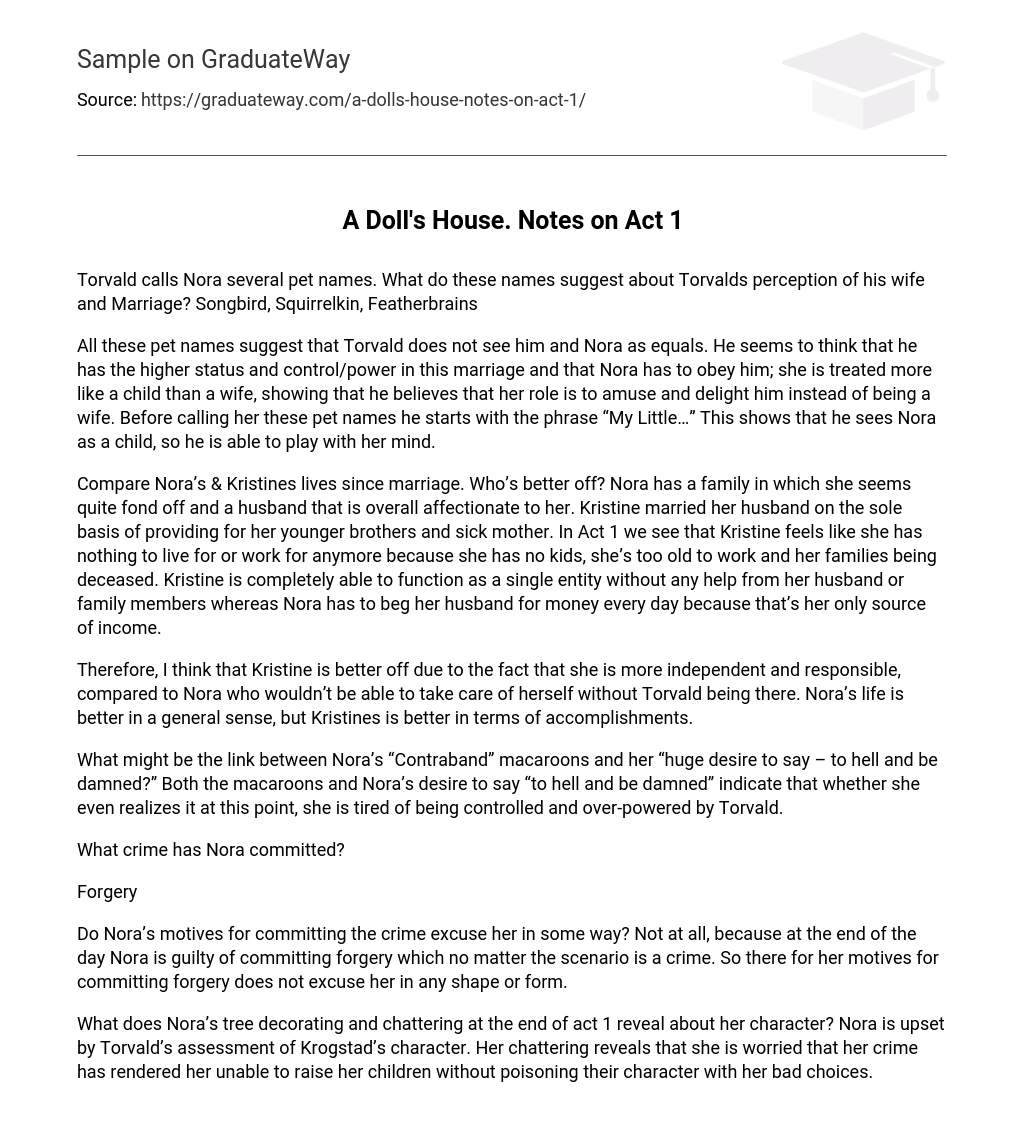Torvald calls Nora several pet names. What do these names suggest about Torvalds perception of his wife and Marriage? Songbird, Squirrelkin, Featherbrains
All these pet names suggest that Torvald does not see him and Nora as equals. He seems to think that he has the higher status and control/power in this marriage and that Nora has to obey him; she is treated more like a child than a wife, showing that he believes that her role is to amuse and delight him instead of being a wife. Before calling her these pet names he starts with the phrase “My Little…” This shows that he sees Nora as a child, so he is able to play with her mind.
Compare Nora’s & Kristines lives since marriage. Who’s better off? Nora has a family in which she seems quite fond off and a husband that is overall affectionate to her. Kristine married her husband on the sole basis of providing for her younger brothers and sick mother. In Act 1 we see that Kristine feels like she has nothing to live for or work for anymore because she has no kids, she’s too old to work and her families being deceased. Kristine is completely able to function as a single entity without any help from her husband or family members whereas Nora has to beg her husband for money every day because that’s her only source of income.
Therefore, I think that Kristine is better off due to the fact that she is more independent and responsible, compared to Nora who wouldn’t be able to take care of herself without Torvald being there. Nora’s life is better in a general sense, but Kristines is better in terms of accomplishments.
What might be the link between Nora’s “Contraband” macaroons and her “huge desire to say – to hell and be damned?” Both the macaroons and Nora’s desire to say “to hell and be damned” indicate that whether she even realizes it at this point, she is tired of being controlled and over-powered by Torvald.
What crime has Nora committed?
Forgery
Do Nora’s motives for committing the crime excuse her in some way? Not at all, because at the end of the day Nora is guilty of committing forgery which no matter the scenario is a crime. So there for her motives for committing forgery does not excuse her in any shape or form.
What does Nora’s tree decorating and chattering at the end of act 1 reveal about her character? Nora is upset by Torvald’s assessment of Krogstad’s character. Her chattering reveals that she is worried that her crime has rendered her unable to raise her children without poisoning their character with her bad choices.





